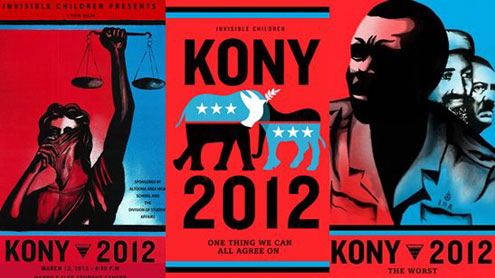 The Kony 2012 craze has, like we all imagined it would, faded into the social media mist, being replaced by something more important, like spring break photos.
The Kony 2012 craze has, like we all imagined it would, faded into the social media mist, being replaced by something more important, like spring break photos.
I don’t want to hate on the “Stop Kony” trend that exploded your news feed for all of two days. I don’t want to talk about Jason Russell, the co-founder of Invisible Children, and his alleged public indecency charges and questions of the organization’s legitimacy. I want to talk about what we, hopefully, learned from the Kony 2012 video.
The purpose of the video was to “make Joseph Kony famous” for his war crimes against children. And while sorority girls and virtually everyone on your timeline posted about the injustice happening in Africa, the apathy went viral just as quickly.
What I hope we can come away with is not that this is an isolated incident in need of a quick fix. The harsh reality is that there are hundreds of Konys in Africa, and what should be even grosser and shocking than child warrior videos is that his government, and those like it, is receiving millions of dollars in aid.
Billions flow into Africa every year from organizations like the International Monetary Fund and other charities. It only takes a few clicks of the mouse to find out the World Bank gives money in one way or another to the Ugandan government and to virtually all governments in the third world in the form of loans and grants. Most of the money ends up in the hands of governments that allow injustice and corruption to flourish.
There are rumors that Kony fled Uganda, and maybe that’s true, but Kony isn’t the only problem that Africa has. The overwhelming issue is that a great number of African countries are dependent on foreign aid to stay afloat. It is safe to say that this money isn’t being put to good use and that we are enabling a problematic addiction, so to speak.
If our current aid models were working as intended, Africa would be a fully-developed continent. Yet, as billions of dollars in aid and programs inundate African countries, the problems seem to be getting worse. HIV and AIDS are still widespread in Sub-Saharan Africa, and the region remains one of the poorest in the world.
Author and economist Dambisa Moyo presents compelling evidence that aid is hurting, not helping, Africa in her book, “Dead Aid: Why Aid is Not Working and How there is a Better Way for Africa.” She presents a series of solutions to the basic economic issues in Africa and a renunciation of foreign aid. It is a must-read for anyone interested in further education on the state of the current humanitarian aid model.
If we really want to help Africa, we need a different approach. Throwing money at the issues may make us feel better, but it is doing little to address the real problems Africa is facing. What the continent needs is a sustainable answer to establish self-sufficient economies, and encouraging a dependency on foreign aid is counterproductive.
I can only hope that Kony’s 15 minutes of fame is not where caring about Africa stops. It doesn’t take an economist to realize that whatever we’re trying to do to help isn’t working. Let’s find ways to spend our money more effectively and help Africa out of the rut the West has created.
Sarah Papadelias is a staff designer at The Crimson White.









